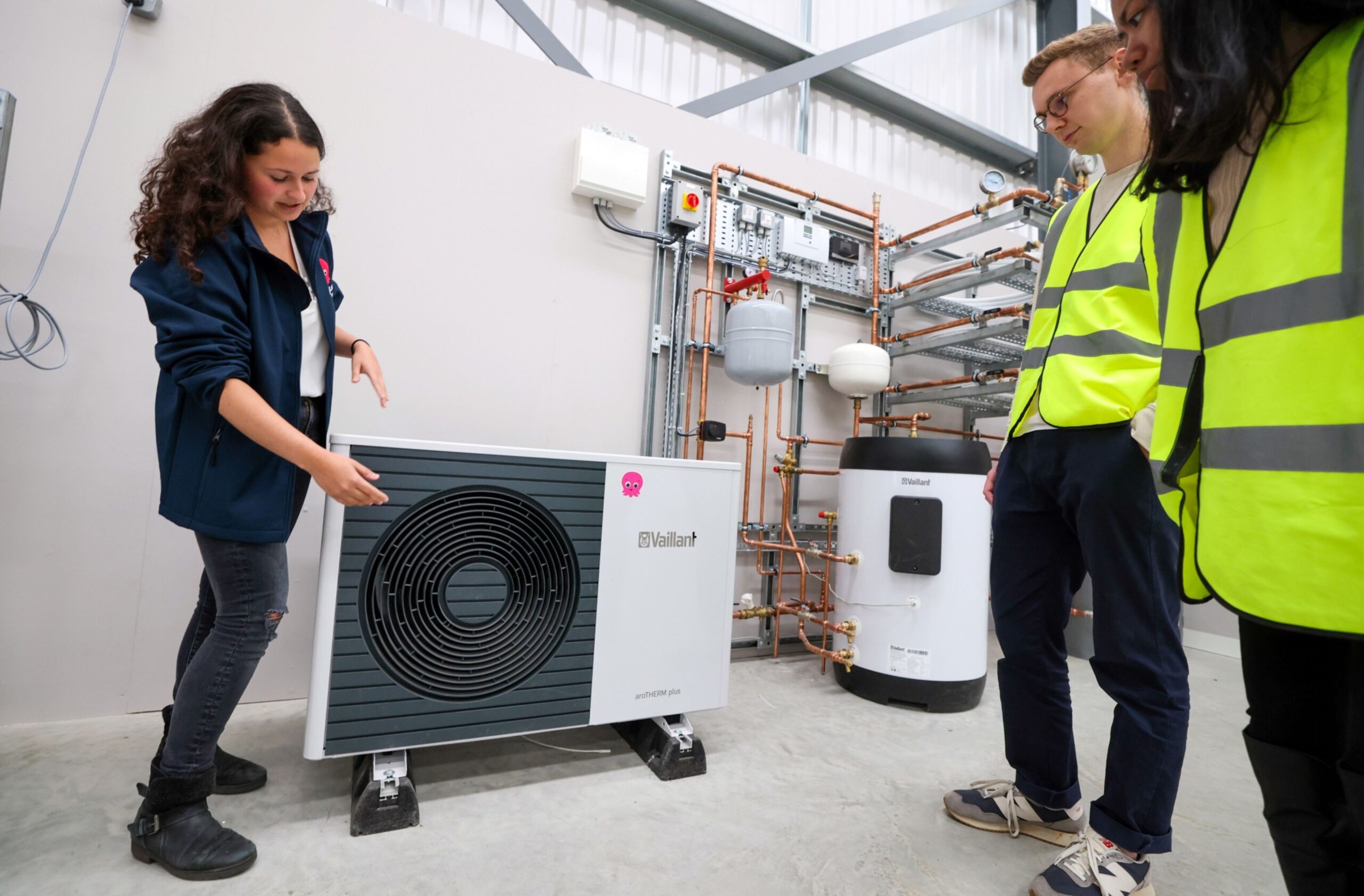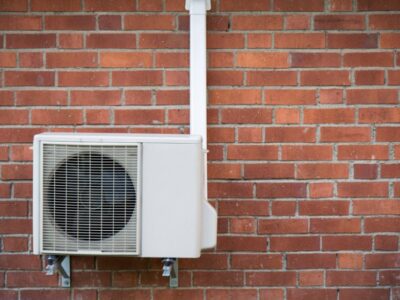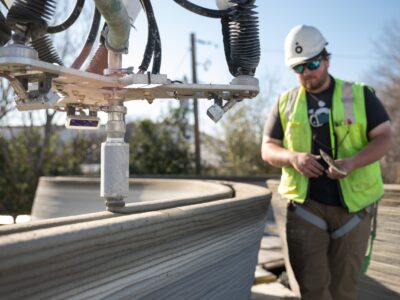(Bloomberg) —
Heat pumps are one of the most effective ways to shrink your home’s carbon footprint and your utility bills at a time of rising electricity and natural gas costs. The technology can heat and cool homes, and supply hot water.
A high-efficiency electric heat pump that replaces a fossil fuel furnace or boiler resembles an air conditioner unit and is installed outside the house. To heat the home, a liquid refrigerant in a copper coil extracts heat from the atmosphere as warm air naturally moves toward the cold. The heat transforms the refrigerant into a cold gas; a compressor then pressurizes the gas, raising its temperature and heating the air inside the house. In the summer, the appliance cools a home by absorbing heat from inside and transferring it outside. Heat pumps are up to four times as efficient as natural gas furnaces since they merely move heat from one place to another rather than burn fuel.
A heat pump water heater works on the same principle and is up to four times as efficient as conventional gas or electric water heaters. They can also act as “thermal batteries,” heating water when electricity rates are low for use later in the day when prices rise. Many models are Wi-Fi-enabled, allowing homeowners or utilities to control when water is heated.
If you’ve been on the fence about getting a heat pump, consider that some countries are offering generous incentives — £5,000 in the UK, for example, and up to $8,000 in the US — that make now a good time for it. But make sure you know or ask for the answers to these five questions first.
How old is my furnace and water heater?
The lifespan of a natural gas furnace typically runs 15 to 20 years, though some can last as long as 30 or more: If you’ve recently replaced a natural gas furnace with another one, you probably won’t want to scrap it for a heat pump. Likewise, gas water heaters usually only need to be replaced after 12 to 15 years.
But if you’re planning on installing an air conditioner, it could make sense to go ahead and switch to a heat pump. And if you’re in the US and your home is already powered by solar panels, there’s a stronger case for replacing a furnace before the end of its useful life. Not only will you avoid paying for increasingly expensive natural gas, you’ll be tapping low-cost electricity to power the heat pump.
Water heaters are prone to sudden failure as they age. Most people don’t want to go long without hot water, so if your gas or conventional electric water heater is getting old, now would be the time to replace it with a heat pump. Another reason to avoid buying a heat pump under duress is that installing one can be complicated and time consuming and they can be in short supply.
How well insulated is my home?
If your house is drafty because the doors and windows are leaky and the walls and attic are poorly insulated, then you’ll need a bigger and more expensive heat pump to keep the home warm. It pays in the long run to hire an energy auditor to identify where heat is escaping the house and plug the leaks. That will let you properly size the heat pump, lowering your electricity bills.
What type of heat pump system do I need?
If you currently have central heating, you’ll most likely want a heat pump that distributes air through the existing ducts. (Be forewarned, though, that the ducts may need to be replaced if they’re old, which can be a pricey proposition.) Alternatively, you can install what is known as a ductless heat pump, also called a mini-split, that circulates warm or cool air through wall-mounted units. One advantage of the mini-split is that you don’t have to worry about maintaining ductwork, which can become leaky over time.
Will I need to upgrade my home’s electrical panel?
Heat pumps are high-voltage appliances and usually require a circuit panel capable of handling multiple 240-volt devices. If you live in an older home and are replacing lower-voltage furnaces and gas water heaters, you may need to upgrade your circuit panel to 200 amps, which can cost several thousand dollars. If a utility “supply” wire to your home must be replaced, costs can balloon to $10,000 or more.
There are some workarounds. One option is to install a “smart panel” that manages all the circuits in the home, balancing electrical demand so that appliances like heat pumps can be added without overloading the system. Smart panels made by Span and Schneider Electric can cost $3,000 or more. The Inflation Reduction Act, however, offers Americans a $4,000 rebate for electrical upgrades.
Another alternative to reduce the electrical load is to install a lower-voltage heat pump water heater. Right now, there’s just a couple of 120-volt models available, from Rheem and Ruud, and the Rheem is currently only sold in California. But other major manufacturers are expected to bring 120-volt versions to market in the next year or so.
One word of caution: Some home electrical upgrades can take months to complete, time you won’t have if a water heater just failed. It’s a strong argument for answering this question ASAP, and making any needed improvements well in advance of installing a heat pump.
Do contractors in my area specialize in heat pumps?
Almost any plumbing company can install a gas furnace or water heater. But finding one that is knowledgeable about heat pumps and how to replace gas appliances can be a challenge. In the US, your state or utility rebate program may list recommended contractors. Otherwise, check out plumbing contractors’ websites and gauge how much they promote heat pumps and the depth of their expertise.
To contact the author of this story:
Todd Woody in San Francisco at twoody4@bloomberg.net
© 2023 Bloomberg L.P.





